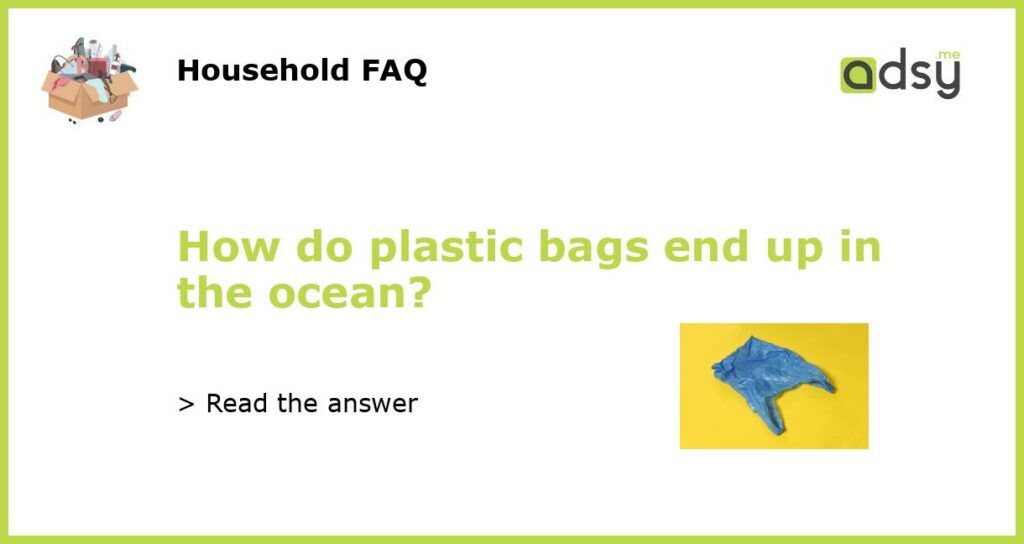Plastic Bags: A Major Threat to the Oceans
Plastic pollution is a growing environmental concern worldwide, with the oceans being severely impacted by this issue. One of the most common sources of marine plastic pollution is plastic bags. Plastic bags end up in the ocean through several different pathways, ranging from improper disposal to stormwater runoff.
Improper Disposal
One of the main reasons why plastic bags end up in the ocean is improper disposal by individuals. Many people often discard plastic bags after use without considering the consequences. These bags are often left on beaches, thrown out of boats, or dropped on the ground, where they can easily make their way into water bodies and eventually reach the ocean.
Poor Waste Management Systems
Another contributing factor to the presence of plastic bags in the ocean is inadequate waste management systems in many countries. In areas with poor waste management infrastructure, plastic bags may not be collected and disposed of properly. As a result, they can end up in rivers and other waterways, which ultimately lead to the ocean.
Wind and Stormwater Runoff
Plastic bags can be carried by wind or washed away by stormwater runoff, leading to their entry into the ocean. When plastic bags are not properly secured or disposed of, they can be easily blown by the wind and transported over long distances before eventually ending up in water bodies. Stormwater runoff also plays a significant role in transporting plastic bags from urban areas to rivers and ultimately the ocean.
Shipping and Fishing Activities
Maritime activities such as shipping and fishing can also contribute to the presence of plastic bags in the ocean. Accidental spills and improper disposal of waste by ships can introduce plastic bags into the marine ecosystem. Similarly, fishing vessels may discard plastic packaging or use plastic bags in their operations, which can end up in the ocean if not handled properly.
Sewage and Wastewater Treatment Mismanagement
Sewage and wastewater treatment mismanagement can be another pathway through which plastic bags find their way into the ocean. In areas with inadequate treatment facilities, wastewater containing plastic bags can be discharged directly into water bodies, leading to their eventual transport to the ocean. Additionally, sewage overflows and inadequate stormwater management systems can result in the release of plastic bags into the marine environment.
In conclusion, plastic bags end up in the ocean through a combination of improper disposal, poor waste management systems, wind and stormwater runoff, shipping and fishing activities, as well as sewage and wastewater treatment mismanagement. It is crucial to address these multiple pathways of plastic bag pollution to reduce the impact on the oceans and marine life. Strict regulations, improved waste management infrastructure, and public awareness campaigns can all play a role in mitigating this environmental issue and preserving the health of our oceans.






